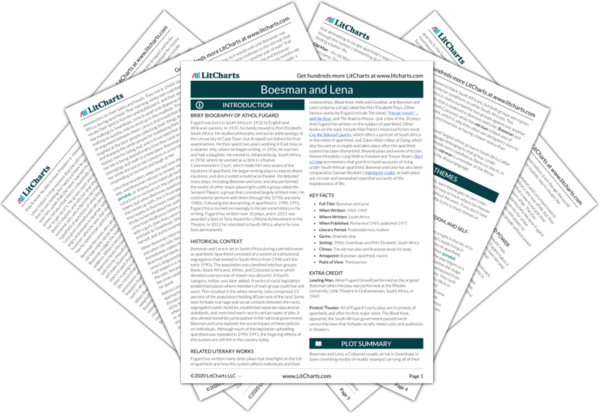Next
Summary
Boesman and Lena Study Guide |
Next
Summary
|
Welcome to the LitCharts study guide on Athol Fugard's Boesman and Lena. Created by the original team behind SparkNotes, LitCharts are the world's best literature guides.

Leading Man. Athol Fugard himself performed as the original Boesman when the play was performed at the Rhodes University Little Theatre in Grahamstown, South Africa, in 1969.
Protest Theater. All of Fugard’s early plays are in protest of apartheid, and after his first major work, The Blood Knot, appeared, the South African government passed harsh censorship laws that forbade racially mixed casts and audiences in theaters.